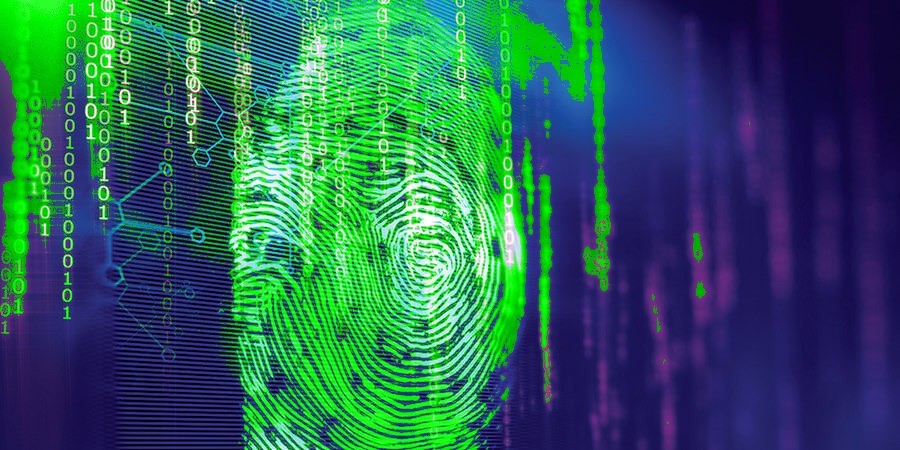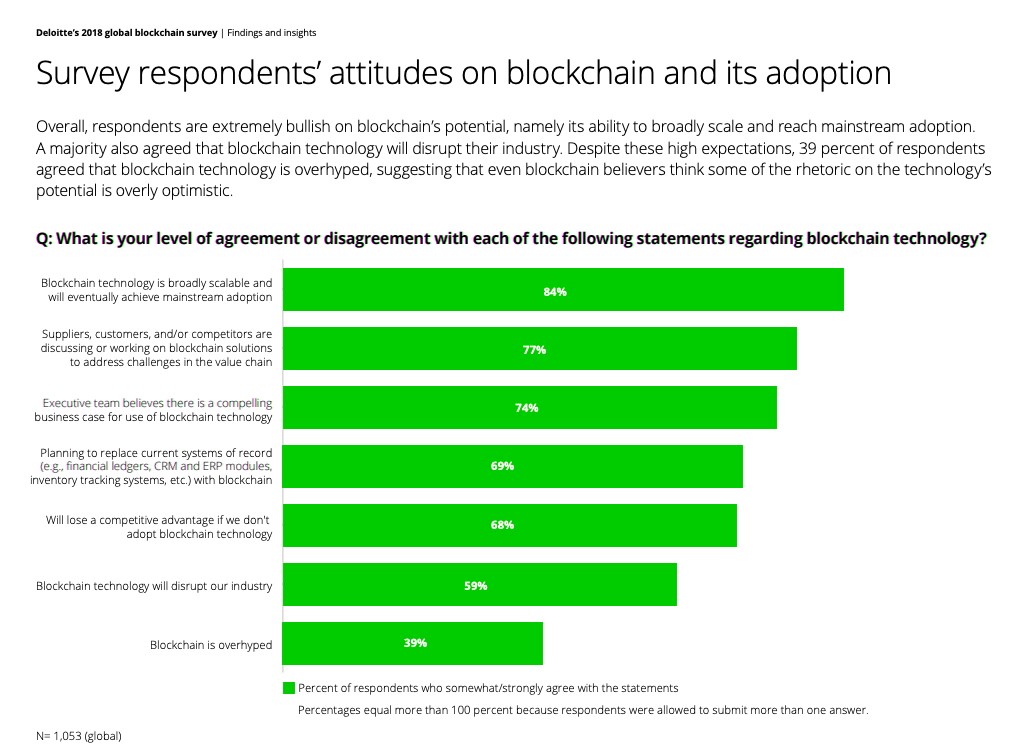Blockchain will solve digital identity security issues? 84% of organizations believe that blockchain is more secure than traditional IT systems

96% of hackers' primary task is to collect information and intelligence, which means that some or all of your digital identity may be stolen. The digital identity issue is quite worrying when you are online.
A digital identity can be a person, organization, or individual device that consists of personal data and online behavior. The data can be divided into two different collections, data attributes and account operations and activities. You can compare these collections to a real person, "data attributes" are people/body, and "actions" are what you do and where to go.
Data attributes include:
- After five years of grinding a sword, Weizhong Bank's financial technology is fully open source, and the blockchain plays an important role.
- zkSNARKs contract library "input pseudonym" vulnerability, many mixed currency projects
- The currency circle succeeds in marketing? Gold Daxie: Bitcoin is just that.
(1) User name and password;
(2) date of birth;
(3) identification number;
(4) medical history;
(5) Bank information.
Account operations and activities include:
(1) Likes and comments on Facebook;
(2) Instagram photos;
(3) Posts of the forum;
(4) Search query records;
(5) Geographical markers.
Even with this little piece of information, you can see how fast it is to build a person's file. Think about how much data you put online last year, not just on social media, but around the world. Online shopping, new applications, deposits and withdrawals, job applications, government portals. A lot of personal information is entrusted to third parties. If it falls into the hands of a criminal, identity theft is too easy.
1. Where and how is the personal information disclosed?

In 2019 alone, technology giants Microsoft and Facebook suffered data breaches. According to TechCrunch, Facebook has posted as many as 540 million personal records on a public storage server, and hackers have access to Outlook's email accounts. If even these two giants are trying to protect our digital identity, then there must be something wrong.
What you need to worry about is not only the mistrust of third parties, but also all kinds of weaknesses that need us to be vigilant.
Public WIFI and insecure websites can create inexplicable risk exposure points, location sharing and adding strangers to social media accounts, posing a very real risk. Don't forget to update your password and use multiple password options on your account.

86% worry about the security of online transactions, and 87% say they want to log in easily.
The consequences of careless data protection are incredibly embarrassing, and financial theft, identity theft, false tax returns, and credit card fraud can change lives even if they are not devastating.
Fortunately, most personal data is usually sold for marketing purposes. This is usually legal, but it is not always legal, such as not reading the privacy policy yourself or unchecking the marketing options on your account. Once the company gives up control of your private information and then sells your identity, who knows what will happen.
2. How does the blockchain solve the digital identity problem?
Blockchain and digital identity are a combination of heaven and earth.
Bitcoin is a viable option for the currency and the world economy, and many people are skeptical. The potential technology – the blockchain is the real value.
According to Deloitte's 2018 global blockchain survey, 84% of organizations believe that blockchain is safer than traditional IT systems.

The decentralized blockchain is considered to be the safest network ever, and it has not been solved so far. Managed by a cluster of computers rather than a single entity, the data is bound to blocks that are protected with cryptography. Once entered, the data cannot be deleted, edited or copied.
2.1. Blockchain prevents digital identity theft
As we discussed, it is a very secure way to store data, including personal information. Since data cannot be copied, it provides a quick way to combat fraud. This is the same principle that prevents fake bitcoin from entering the network. For cryptocurrencies, it is called "double payout." When multiple transactions are made using the same funds or tokens, the network rejects the activity. This is how digital identities work, and two people cannot use the same identity.
2.2. Blockchain digital identity is tamper-proof
The history of tampering with records has long been, from theft to modification and destruction, paper files and records are always easily used for corrupt activities. While record digitization helps in storage and improves efficiency, it is also not secure. In fact, if you are connected to the Internet, the door to data tampering will open to the world.
The blockchain provides a solution through a cryptographic hash function that imagines "hash" as DNA, and each block of data entering the network has a unique hash/DNA. A strict set of password rules means that any changes to the input hash will have significant changes to the output hash. Each new data block is linked to the previous block by this hash, which creates a chain or "blockchain" into which the blocks are connected. When tampering occurs, the entire chain structure is changed and the change is rejected. This is impossible to happen.
2.3. Blockchain enables the use of trusted data
So we can make personal data safer, but how do you use it? That's why it's so precious, and if it's just locked in a vault, it's useless.
At the same time, some new companies are developing a solution to help businesses and users protect their digital identity. For example, the Tide Foundation is working to make digital identity an asset, not a liability, allowing users to control their own data and let them share the profits. Another interesting project is OpenSSL, which developed and released different versions of the common password library to help secure communication over a computer network, preventing eavesdropping or the need to identify the other end.
Large organizations do not easily give up the use of these data because they are profitable. It is either sold or used for marketing. As long as we look at Facebook, we will find out how they are so powerful from the data we are willing to give up.
With the blockchain solution, users can regain control of their digital identity. Individuals can master the key information stored and control the processing of the data. Only the digital identity owner has the right to access and use its identity, perhaps only to prove your identity to the bank or government. Others may want to use it as an asset and get paid by providing a company with a specific data set to accomplish a specific task.
The world is still trying to integrate old and new things, and a lot of things are not suitable. The banking industry is outdated, data storage is not secure, and controlling digital security is almost impossible. GDPR shows that the burden of data protection is increasing for businesses.
Blockchain is the next technology development that uses intelligent automation networks to eliminate third-party trust and return data control to real owners.
Author: Andrey Sergeenkov
Translation: Bitker Institute
Disclaimer: This article was compiled by the Bitker Institute. The Bitker Institute focuses on theoretical exploration of the blockchain industry, technology development, and analysis of the secondary market analysis of digital currency.
We will continue to update Blocking; if you have any questions or suggestions, please contact us!
Was this article helpful?
93 out of 132 found this helpful
Related articles
- From Libra concept to USDT or thunderstorm: all stable coins are essentially simulations of French currency
- Bitcoin tax is coming: 10,000 tax warning letters are on the way
- Viewpoint | By the end of 2020, encrypted derivatives or 20 times the size of the spot market
- Exploring Ethereum in depth: What are the pros and cons of using Ethereum blockchain?
- Ethereum: Please don't call me a cottage coin!
- Buying BTC on Monday actually earns nearly 20 times more than buying on Sunday?
- Blockchain Weekly | AlipayHK: Chinese version of Libra?






